-
×
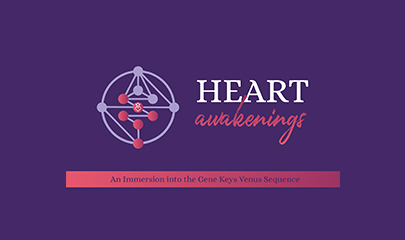 Heart Awakenings By Unlock Your Design Academy
1 × $46,00
Heart Awakenings By Unlock Your Design Academy
1 × $46,00 -
×
 Training Session - Half-Guard by Roberto Gordo
1 × $6,00
Training Session - Half-Guard by Roberto Gordo
1 × $6,00 -
×
 Buddhism By Malcolm David Eckel
1 × $5,00
Buddhism By Malcolm David Eckel
1 × $5,00 -
×
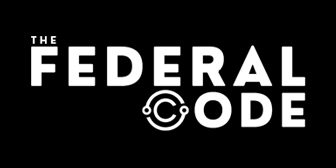 The Federal Code Government Contracting By Jason White
1 × $23,00
The Federal Code Government Contracting By Jason White
1 × $23,00 -
×
 Trend-Rev Block And Ea Forex System - No Mt4 Indicator - By Ifxsuccess
1 × $69,00
Trend-Rev Block And Ea Forex System - No Mt4 Indicator - By Ifxsuccess
1 × $69,00 -
×
 Infield Mastery Program By Matt Artisan
1 × $69,00
Infield Mastery Program By Matt Artisan
1 × $69,00 -
×
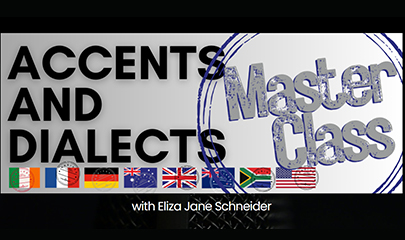 Accents and Dialects Master Class By Eliza Jane Schneider
1 × $62,00
Accents and Dialects Master Class By Eliza Jane Schneider
1 × $62,00 -
×
 The Virtual Workshop By John Wineland
1 × $39,00
The Virtual Workshop By John Wineland
1 × $39,00 -
×
 The Federal Code Blueprint 2023 2.0 By Jason White
1 × $23,00
The Federal Code Blueprint 2023 2.0 By Jason White
1 × $23,00 -
×
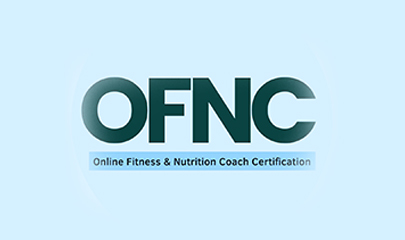 Online Fitness And Nutrition Coach By Dala McDevitt - DLDNation
1 × $319,00
Online Fitness And Nutrition Coach By Dala McDevitt - DLDNation
1 × $319,00 -
×
 Super Shoulders By Got Rom
1 × $23,00
Super Shoulders By Got Rom
1 × $23,00 -
×
 Awakening Female Pleasure Online Course: Heal and Empower Your Partner By Eyal Matsliah - Beducated
1 × $5,00
Awakening Female Pleasure Online Course: Heal and Empower Your Partner By Eyal Matsliah - Beducated
1 × $5,00 -
×
 The 4 Cycles of Shaolin Qigong by Robert Peng - The Shift Network
1 × $54,00
The 4 Cycles of Shaolin Qigong by Robert Peng - The Shift Network
1 × $54,00 -
×
 Professional Python Web Development with Flask By Stone River eLearning
1 × $6,00
Professional Python Web Development with Flask By Stone River eLearning
1 × $6,00 -
×
 Wealth Academy By Brian Rose
1 × $23,00
Wealth Academy By Brian Rose
1 × $23,00 -
×
 A History of British India By Hayden Bellenoit
1 × $5,00
A History of British India By Hayden Bellenoit
1 × $5,00 -
×
 The Complete Guide to Multiple Time Frame Analysis & Reading Price Action By Aiman Almansoori
1 × $13,00
The Complete Guide to Multiple Time Frame Analysis & Reading Price Action By Aiman Almansoori
1 × $13,00 -
×
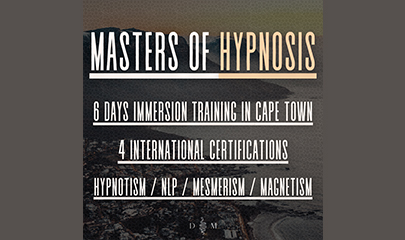 MASTERS OF HYPNOSIS Course 2023 By David Mears
1 × $233,00
MASTERS OF HYPNOSIS Course 2023 By David Mears
1 × $233,00 -
×
 Persuasion In Action Total Immersion Video Footage Collection By Ross Jeffries
1 × $50,00
Persuasion In Action Total Immersion Video Footage Collection By Ross Jeffries
1 × $50,00 -
×
 The Performance Stretch System Level 1 By The Stretch Therapists
1 × $139,00
The Performance Stretch System Level 1 By The Stretch Therapists
1 × $139,00 -
×
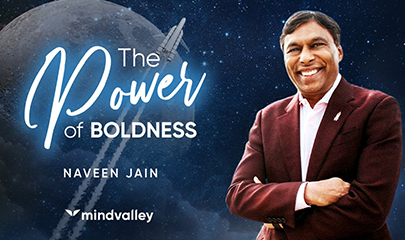 The Power of Boldness 2023 By Naveen Jain - MindValley
1 × $6,00
The Power of Boldness 2023 By Naveen Jain - MindValley
1 × $6,00 -
×
 The Bookkeeping Business Accelerator By Serena Shoup – The Ambitious Bookkeeper
1 × $139,00
The Bookkeeping Business Accelerator By Serena Shoup – The Ambitious Bookkeeper
1 × $139,00 -
×
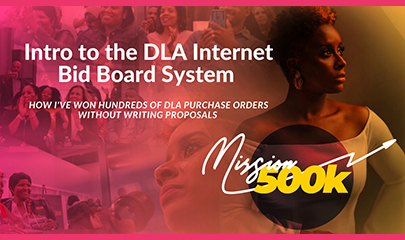 Intro To The Dla Internet Bid Board System (Dibbs) By Sirena Thomas
1 × $622,00
Intro To The Dla Internet Bid Board System (Dibbs) By Sirena Thomas
1 × $622,00 -
×
 6 Figure Instagram Content By Haley & Madison - Maha Copy
1 × $23,00
6 Figure Instagram Content By Haley & Madison - Maha Copy
1 × $23,00 -
×
 The Holy Land Revealed By Jodi Magness
1 × $5,00
The Holy Land Revealed By Jodi Magness
1 × $5,00 -
×
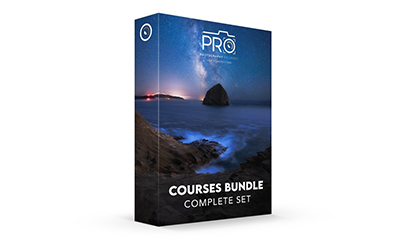 The Landscape Photography Bundle By John Weatherby
1 × $46,00
The Landscape Photography Bundle By John Weatherby
1 × $46,00 -
×
 Learn the Unity 3D Shuriken Particle System By Stone River eLearning
1 × $6,00
Learn the Unity 3D Shuriken Particle System By Stone River eLearning
1 × $6,00 -
×
 Fight Like An Old Man - Digital Download By Russell Stutely
1 × $78,00
Fight Like An Old Man - Digital Download By Russell Stutely
1 × $78,00 -
×
 Scale with Courses By Laurie Burrows
1 × $179,00
Scale with Courses By Laurie Burrows
1 × $179,00 -
×
 Cognomovement An Energy Healing System With Bill McKenna and Liz Larson - The Shift Network
1 × $46,00
Cognomovement An Energy Healing System With Bill McKenna and Liz Larson - The Shift Network
1 × $46,00 -
×
 Million Dollar Masterclass By Eileen Wilder
1 × $85,00
Million Dollar Masterclass By Eileen Wilder
1 × $85,00 -
×
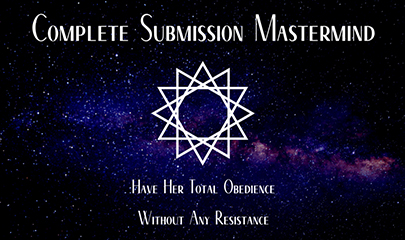 Complete Submission Mastermind By Veronika
1 × $194,00
Complete Submission Mastermind By Veronika
1 × $194,00 -
×
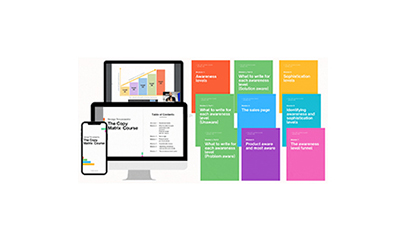 CopyThinking 2023 And 2024 By George Ten
1 × $23,00
CopyThinking 2023 And 2024 By George Ten
1 × $23,00 -
×
 Cultural Literacy for Religion: Everything the Well-Educated Person Should Know By Mark Berkson
1 × $5,00
Cultural Literacy for Religion: Everything the Well-Educated Person Should Know By Mark Berkson
1 × $5,00 -
×
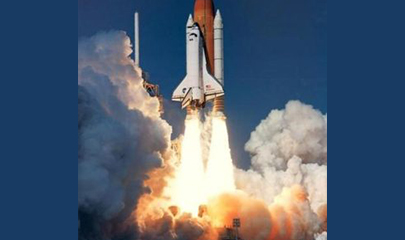 Rocket Ship Buy - Short Signal By Gareth Soloway - InTheMoneyStocks
1 × $31,00
Rocket Ship Buy - Short Signal By Gareth Soloway - InTheMoneyStocks
1 × $31,00 -
×
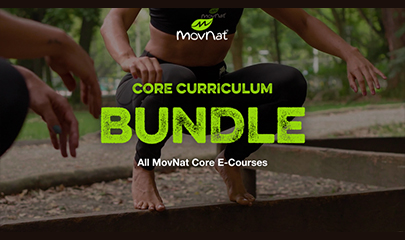 MovNat Core Curriculum Bundle By MovNat
1 × $194,00
MovNat Core Curriculum Bundle By MovNat
1 × $194,00 -
×
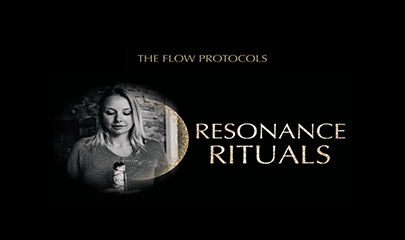 Resonance Rituals 2023 By Cat Howell
1 × $39,00
Resonance Rituals 2023 By Cat Howell
1 × $39,00 -
×
 The Kill The Nice Guy - The Warrior By Traver Boehm
1 × $109,00
The Kill The Nice Guy - The Warrior By Traver Boehm
1 × $109,00 -
×
 Course Secrets by Russell Brunson
1 × $22,00
Course Secrets by Russell Brunson
1 × $22,00 -
×
 Toast FX Course
1 × $5,00
Toast FX Course
1 × $5,00 -
×
 Product Alliance Full Library Access Pass By Product Alliance
1 × $202,00
Product Alliance Full Library Access Pass By Product Alliance
1 × $202,00 -
×
 VIRTUOSITY by Scot McKay
1 × $23,00
VIRTUOSITY by Scot McKay
1 × $23,00 -
×
 This Day in History: August By Wondrium
1 × $5,00
This Day in History: August By Wondrium
1 × $5,00 -
×
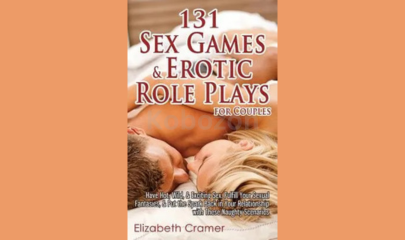 131 Sex Games & Erotic Role Plays for Couples by Elizabeth Cramer
1 × $5,00
131 Sex Games & Erotic Role Plays for Couples by Elizabeth Cramer
1 × $5,00 -
×
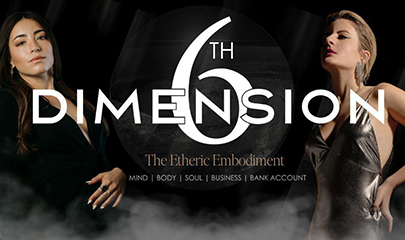 6th Dimension Lifetime Access By Elisa Canali
1 × $23,00
6th Dimension Lifetime Access By Elisa Canali
1 × $23,00 -
×
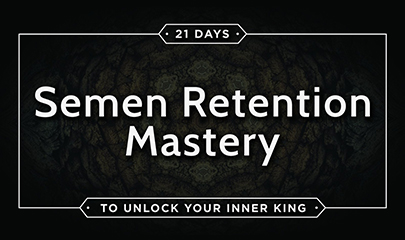 Semen Retention Mastery By Taylor Johnson
1 × $23,00
Semen Retention Mastery By Taylor Johnson
1 × $23,00 -
×
 Sex and Love by Francesco Alberoni
1 × $5,00
Sex and Love by Francesco Alberoni
1 × $5,00 -
×
 Your Most Profitable Quarter Yet By Alyssa Coleman
1 × $23,00
Your Most Profitable Quarter Yet By Alyssa Coleman
1 × $23,00 -
×
 Ignore & Score - How to Get the Girl: Dating Mindsets Explained by Robert Belland
1 × $5,00
Ignore & Score - How to Get the Girl: Dating Mindsets Explained by Robert Belland
1 × $5,00 -
×
 Human Design Business Kickstart Bundle 2024 By Becca Francis
1 × $78,00
Human Design Business Kickstart Bundle 2024 By Becca Francis
1 × $78,00 -
×
 Myth in Human History By Dr Grant Voth
1 × $5,00
Myth in Human History By Dr Grant Voth
1 × $5,00 -
×
 The History and Achievements of the Islamic Golden Age By Eamonn Gearon
1 × $5,00
The History and Achievements of the Islamic Golden Age By Eamonn Gearon
1 × $5,00 -
×
 Enigma 0 The Principles of Zepar By Arash Dibazar
1 × $5,00
Enigma 0 The Principles of Zepar By Arash Dibazar
1 × $5,00 -
×
 Ghost Hunting & Paranormal Investigation with your Pendulum By Pendulum Alchemy
1 × $31,00
Ghost Hunting & Paranormal Investigation with your Pendulum By Pendulum Alchemy
1 × $31,00 -
×
 Product Marketing Bootcamp By Melinda Chung
1 × $85,00
Product Marketing Bootcamp By Melinda Chung
1 × $85,00 -
×
 Small Account Futures (Elite Package) By Joe Rokop - Simpler Trading
1 × $23,00
Small Account Futures (Elite Package) By Joe Rokop - Simpler Trading
1 × $23,00 -
×
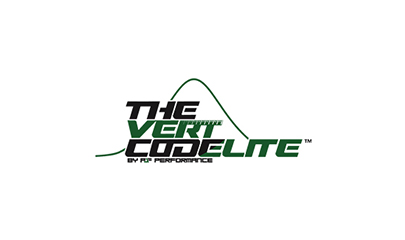 The Vert Code Elite By PJF Performance
1 × $23,00
The Vert Code Elite By PJF Performance
1 × $23,00 -
×
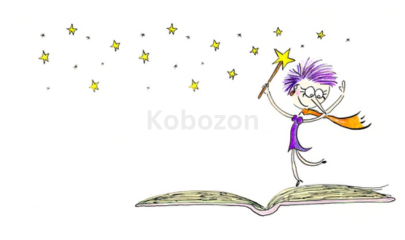 Stories in Miniature by Henneke Duistermaat
1 × $54,00
Stories in Miniature by Henneke Duistermaat
1 × $54,00 -
×
 Convology Pro - All Access Membership
1 × $23,00
Convology Pro - All Access Membership
1 × $23,00 -
×
 AI Email Story Wizard Workshop By Bill Mueller
1 × $23,00
AI Email Story Wizard Workshop By Bill Mueller
1 × $23,00 -
×
 The Sensual Alchemy Masterclass - For Men By Yuval Man
1 × $46,00
The Sensual Alchemy Masterclass - For Men By Yuval Man
1 × $46,00 -
×
 9 Day Calendar Deep Dive 2023 By Jay Bailey - Sheridan Options Mentoring
1 × $31,00
9 Day Calendar Deep Dive 2023 By Jay Bailey - Sheridan Options Mentoring
1 × $31,00 -
×
 Association Domination Masterclass By Perry Belcher
1 × $6,00
Association Domination Masterclass By Perry Belcher
1 × $6,00 -
×
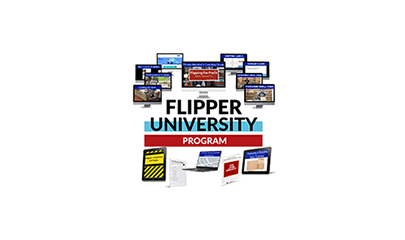 Flipper University - Pro Flipper PLUS Package (Beg, Intermediate, Freight) By Flea Market Flipper
1 × $209,00
Flipper University - Pro Flipper PLUS Package (Beg, Intermediate, Freight) By Flea Market Flipper
1 × $209,00 -
×
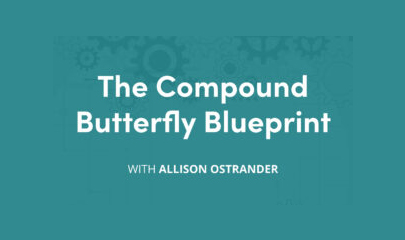 Compound Butterfly Blueprint (Elite Package) By Allison Ostrander - Simpler Trading
1 × $62,00
Compound Butterfly Blueprint (Elite Package) By Allison Ostrander - Simpler Trading
1 × $62,00 -
×
 Photoshop CC For The Web By Stone River eLearning
1 × $6,00
Photoshop CC For The Web By Stone River eLearning
1 × $6,00 -
×
 Kubera Energy Field - Kubera Mantra Energised 1008x By Spirituality Zone
1 × $15,00
Kubera Energy Field - Kubera Mantra Energised 1008x By Spirituality Zone
1 × $15,00 -
×
 Options Trading Workshop On Demand By Affordable Financial Education
1 × $69,00
Options Trading Workshop On Demand By Affordable Financial Education
1 × $69,00 -
×
 7 Figure Sales Training and Script Bundle By Eric Cline
1 × $319,00
7 Figure Sales Training and Script Bundle By Eric Cline
1 × $319,00 -
×
 Portfolio Investing By Ron Bertino
1 × $54,00
Portfolio Investing By Ron Bertino
1 × $54,00 -
×
 AI NSFW Mastery - Unlock the Secrets of AI Porn! By Only AI
1 × $23,00
AI NSFW Mastery - Unlock the Secrets of AI Porn! By Only AI
1 × $23,00 -
×
 Destination Girlfriend By Jon Sinn
1 × $6,00
Destination Girlfriend By Jon Sinn
1 × $6,00 -
×
 7 Powers Package By John Demartini
1 × $31,00
7 Powers Package By John Demartini
1 × $31,00 -
×
 The Money Muse Experience By Elisa Canali
1 × $31,00
The Money Muse Experience By Elisa Canali
1 × $31,00 -
×
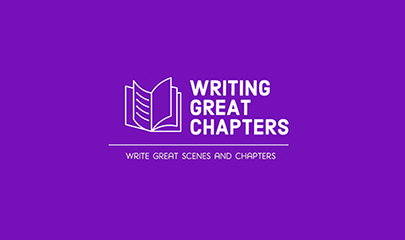 Writing Great Chapters By Daniel David Wallace
1 × $23,00
Writing Great Chapters By Daniel David Wallace
1 × $23,00 -
×
 MovNat Mobility Bundle By MovNat
1 × $54,00
MovNat Mobility Bundle By MovNat
1 × $54,00 -
×
 100K Day Setup Elite Package By TG Watkins – Simpler Trading
1 × $69,00
100K Day Setup Elite Package By TG Watkins – Simpler Trading
1 × $69,00 -
×
 Natural Instinct Method - RSD Nation
1 × $5,00
Natural Instinct Method - RSD Nation
1 × $5,00 -
×
 Hypnosis: Master Self Hypnosis Now! by James Metcalf
1 × $5,00
Hypnosis: Master Self Hypnosis Now! by James Metcalf
1 × $5,00 -
×
 The Shopify Program By April Hardy - Elevate With Ecommerce
1 × $23,00
The Shopify Program By April Hardy - Elevate With Ecommerce
1 × $23,00 -
×
 7 Days To A Kick Ass New You By Regan Hillyer
1 × $85,00
7 Days To A Kick Ass New You By Regan Hillyer
1 × $85,00 -
×
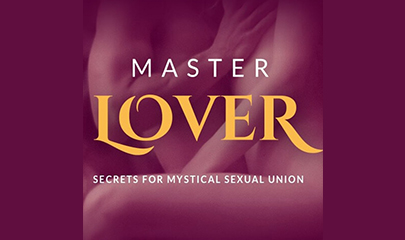 Master Lover 2023 - Secrets For Mystical Sexual Union By Tantra Garden
1 × $69,00
Master Lover 2023 - Secrets For Mystical Sexual Union By Tantra Garden
1 × $69,00 -
×
 Bookkeeping for Etsy Sellers By Lauren Venell
1 × $5,00
Bookkeeping for Etsy Sellers By Lauren Venell
1 × $5,00 -
×
 Super Good Luck Savings Bundle By Hyptalk
1 × $78,00
Super Good Luck Savings Bundle By Hyptalk
1 × $78,00 -
×
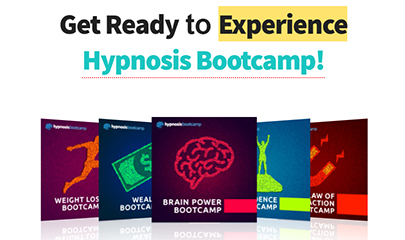 Hypnosis Bootcamp - 5 Course Bundle
1 × $139,00
Hypnosis Bootcamp - 5 Course Bundle
1 × $139,00 -
×
 eCom Fast Track Bundle By Justin Phillips
1 × $15,00
eCom Fast Track Bundle By Justin Phillips
1 × $15,00 -
×
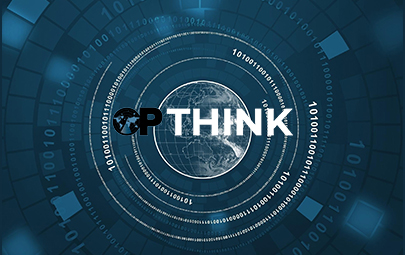 Opthink By Everyday Spy
1 × $69,00
Opthink By Everyday Spy
1 × $69,00 -
×
 4 Product Bundle By Allie Bloyd
1 × $39,00
4 Product Bundle By Allie Bloyd
1 × $39,00 -
×
 Social Media Growth Program By Jay Shetty
1 × $85,00
Social Media Growth Program By Jay Shetty
1 × $85,00 -
×
 Beginner Forex Mastery Course By Harrison Uwah - MHU FX Academy
1 × $78,00
Beginner Forex Mastery Course By Harrison Uwah - MHU FX Academy
1 × $78,00 -
×
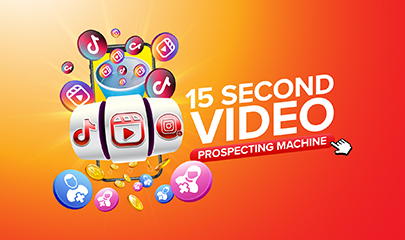 15 Second Video Prospecting Machine By Attraction Marketing
1 × $62,00
15 Second Video Prospecting Machine By Attraction Marketing
1 × $62,00 -
×
 Wired For Weight Loss By Mark Patrick
1 × $23,00
Wired For Weight Loss By Mark Patrick
1 × $23,00 -
×
 PUA Cribs: Project Bel-Air by Johnny Wolf
1 × $5,00
PUA Cribs: Project Bel-Air by Johnny Wolf
1 × $5,00 -
×
 Trading double Diagonals 2023 By Dan Sheridan - Sheridan Options Mentoring
1 × $39,00
Trading double Diagonals 2023 By Dan Sheridan - Sheridan Options Mentoring
1 × $39,00 -
×
 Become Square Space Web Designer By Pixelhaze Academy
1 × $23,00
Become Square Space Web Designer By Pixelhaze Academy
1 × $23,00 -
×
 Applied Technical Analysis for Equity Markets By Scott Powell - CFI Education
1 × $15,00
Applied Technical Analysis for Equity Markets By Scott Powell - CFI Education
1 × $15,00 -
×
 Twitter Masterclass Recordings By Cold Email Wizard
1 × $39,00
Twitter Masterclass Recordings By Cold Email Wizard
1 × $39,00 -
×
 Visual Guide to Phrasal Verbs By EnglishAnyone
1 × $6,00
Visual Guide to Phrasal Verbs By EnglishAnyone
1 × $6,00 -
×
 The History of Christianity II: From the Reformation to the Modern Megachurch By Molly Worthen
1 × $5,00
The History of Christianity II: From the Reformation to the Modern Megachurch By Molly Worthen
1 × $5,00 -
×
 Secrets About Girls That Every Guy Should Know
1 × $5,00
Secrets About Girls That Every Guy Should Know
1 × $5,00 -
×
 Messaging Program By Phoebe Kuhn - The Content Emporium
1 × $209,00
Messaging Program By Phoebe Kuhn - The Content Emporium
1 × $209,00 -
×
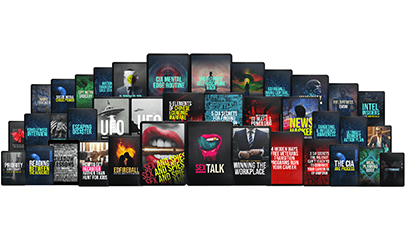 Unfair Advantage Bundle By Everyday Spy
1 × $101,00
Unfair Advantage Bundle By Everyday Spy
1 × $101,00 -
×
 Where Is My Billion By John Demartini
1 × $15,00
Where Is My Billion By John Demartini
1 × $15,00 -
×
 Financial Modelling Course By Liam Bastick
1 × $124,00
Financial Modelling Course By Liam Bastick
1 × $124,00 -
×
 2000 (currently 27 hours): Exercise Mechanics 1 + Orchestration By Exercise Professional
1 × $39,00
2000 (currently 27 hours): Exercise Mechanics 1 + Orchestration By Exercise Professional
1 × $39,00 -
×
 Music and the Brain By Aniruddh Patel
1 × $5,00
Music and the Brain By Aniruddh Patel
1 × $5,00 -
×
 Classic Croissants, Modern Techniques By Colette Christian
1 × $5,00
Classic Croissants, Modern Techniques By Colette Christian
1 × $5,00 -
×
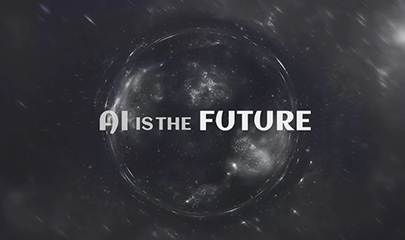 The Art of Generating AI Content By Astra Gallery
1 × $15,00
The Art of Generating AI Content By Astra Gallery
1 × $15,00
The Irish Identity: Independence, History, and Literature By Marc Conner
$239,00 $5,00
SKU: KOB.53083NdhwBA
Category: Science
Tags: and Literature, History, Independence, Marc Conner, The Irish Identity
The Irish Identity: Independence, History, and Literature – Instant Download!
Let’s embark on a captivating adventure to uncover remarkable insights that spark your curiosity and elevate your understanding
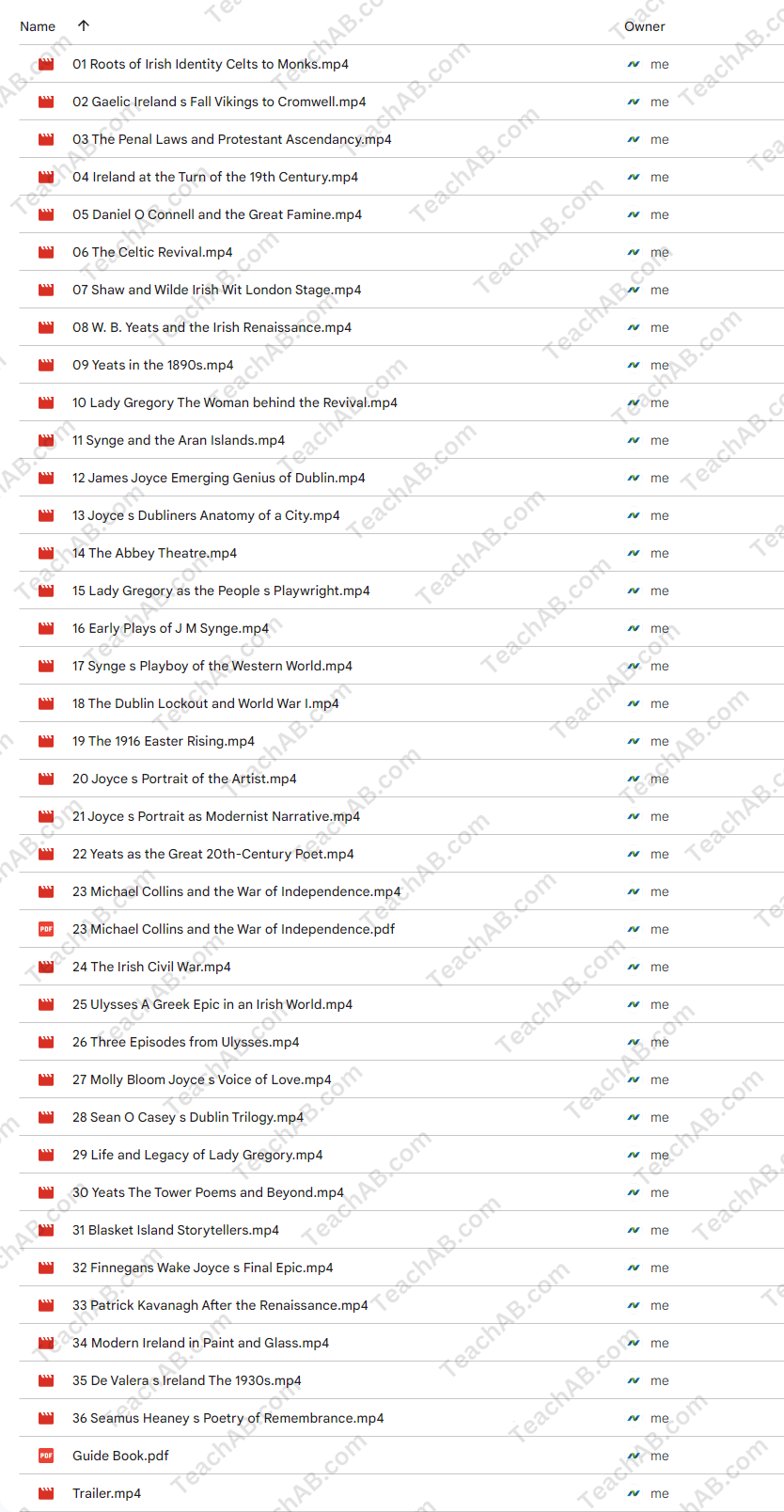
The Irish Identity: Independence, History, and Literature By Marc Conner
Overview
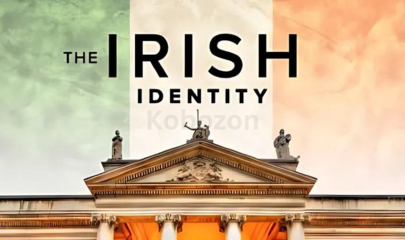
The Irish Identity: Independence, History, and Literature
The concept of Irish identity is a tapestry woven from the threads of historical struggle, language evolution, and cultural resilience. Central to this identity is Ireland’s quest for independence, which has been marked by a series of momentous events like the 1916 Easter Rising and the subsequent war of independence from 1919 to 1921. This path towards self-determination not only shaped the political landscape of the island but also solidified a national consciousness that deeply resonates in Irish literature and identity today. The ecological struggles against colonization, the nuanced relationship with the Irish language, and the persistent influence of English demonstrate a complex duality that frames how the Irish view themselves and their cultural heritage. This article delves into these aspects, examining how each component contributes to a nuanced understanding of what it means to be Irish.
Historical Context of Irish Identity
The Path to Independence
The Irish quest for independence began in earnest in the early 20th century, culminating in events like the Easter Rising of 1916. The Rising, albeit a rebellion that faced immediate suppression, ignited a flame of national consciousness. It was a clear statement of defiance against colonial rule and an assertion of the right to self-determination. This spirit burgeoned into the war of independence, which ultimately led to the partition of the island. The events surrounding these struggles are not merely historical footnotes; they serve as a crucible in which Irish identity was forged.
During this turbulent period, figures such as Michael Collins and Éamon de Valera emerged as pivotal leaders, shaping the vision of a free Ireland. Their legacies continue to influence contemporary Ireland and inform the Irish psyche. The political landscape they helped create a Republic of Ireland existing parallel to Northern Ireland presents an ongoing tension that complicates Irish identity as individuals negotiate their place within this bifurcated landscape.
Language Evolution and Its Influence
Historically, the Irish language, or Gaelige, was the primary means of communication among the population until the late 18th century. However, the rise of English as a dominant tongue during the 19th century marked a painful decline for Irish. Systematic suppression by British authorities, particularly in the educational system, marginalized the Irish language and led to a significant cultural erosion. Children were punished for speaking their mother tongue, resulting in a tragic loss of cultural lineage.
This loss was further compounded by the Great Famine (1845–1852), which led to massive emigration and diminished the presence of Irish speakers. However, as nationalism began to swell in the early 20th century, Irish emerged as a powerful symbol of resistance and cultural identity. This revivalist sentiment sought to reclaim the language, viewing it as inseparable from the fabric of national self-definition and liberation.
The Cultural Dichotomy of Language
Despite independence, English remains the predominant language in Ireland, complicating the intertwining of language and identity. In this context, English can be seen as both an instrument of colonial oppression and a tool for global connectivity. Consequently, discussions around Irish identity today encapsulate a duality wherein individuals navigate their identities through the complexities of both Irish and English languages.
In the modern era, although revitalization efforts for the Irish language are ongoing, its status remains intertwined with colonial history and socio-political discourse. This multifaceted relationship continues to shape notions of identity in contemporary Ireland, reflecting the legacy of the past while striving for a cohesive future.
Literature and the Irish Experience
The Role of Irish Literature in Shaping Identity
Irish literature operates as a mirror reflecting the complexities and nuances of Irish identity. From the works of W.B. Yeats to James Joyce and Seamus Heaney, literature has played a transformative role in articulating the Irish experience be it through poignant narratives of struggle, vivid expressions of cultural pride, or intricate explorations of language. These authors grappled with themes of identity, colonialism, and resilience, painting an elaborate portrait of the Irish consciousness.
For instance, Joyce’s Ulysses is not merely a modernist masterpiece; it is also a profound exploration of Irish identity. Through the lens of his characters, Joyce navigates the complexities of everyday life in Dublin, revealing the intricate web of relationships between personal identity and broader social contexts. Similarly, Heaney’s poetry encapsulates the essence of rural Ireland while addressing the scars of conflict, thereby contributing richly to discussions about what it means to be Irish.
The Interplay of Independence and Literature
The literature produced in the wake of Ireland’s struggle for independence often reflects a preoccupation with freedom not just in political terms, but also in cultural self-expression. Writers found themselves at the forefront of a cultural renaissance, exploring and challenging the narratives imposed upon them. The desire for an authentic voice led to a re-examination of the past and its impact on the contemporary Irish psyche.
Furthermore, this literary movement coincided with a burgeoning nationalist sentiment that sought to reclaim narratives overshadowed by colonial rule. The act of storytelling became a means of resistance. By reclaiming the Irish language and folklore through literature, authors have crafted a distinct cultural identity that persists today, often emphasizing themes of heritage, belonging, and the tumultuous relationship with English.
Current Trends in Irish Literature
In contemporary discussions of Irish identity, literature remains a critical vehicle for examining and questioning the evolving nature of selfhood. Works by modern authors such as Colm Tóibín and Donal Ryan continue to explore themes of diaspora, identity, and belonging, reflecting an Ireland that is both rooted in its past and navigating the complexities of a globalized world. Furthermore, this modern landscape showcases the contributions of Irish women writers, such as Emma Donoghue and Marianne Hirsch, whose voices add depth and diversity to the literary tapestry.
As such, literature serves as a living dialogue one that echoes the historical struggles for independence while seeking to redefine what it means to be Irish in an increasingly interconnected world. It captures the essence of Irish identity as an evolving concept, shaped by the interplay of history, language, and personal narrative.
Conclusion
In sum, the quest to understand Irish identity is a complex endeavor, deeply rooted in the historical struggles for independence, the evolution of the Irish language, and the pervasive influence of English. As individuals navigate their identities against this backdrop, they reflect a narrative that celebrates resilience and cultural pride while grappling with the dynamic interplay of language and self-definition. Literature stands as a testament to this journey a powerful medium that not only documents the past but also illuminates the paths toward a multifaceted and inclusive Irish identity in the ever-changing global landscape. The voices that emerged from Ireland’s struggles remain vital today, inviting further exploration and dialogue about what it means to be Irish, both in the historical context and the contemporary world.
Frequently Asked Questions:
Innovation in Business Models: We use a group purchase approach that enables users to split expenses and get discounted access to well-liked courses. Despite worries regarding distribution strategies from content creators, this strategy helps people with low incomes.
Legal Aspects to Take into Account: Our operations’ legality entails several intricate considerations. There are no explicit resale restrictions mentioned at the time of purchase, even though we do not have the course developers’ express consent to redistribute their content. This uncertainty gives us the chance to offer reasonably priced instructional materials.
Quality Control: We make certain that every course resource we buy is the exact same as what the authors themselves provide. It’s crucial to realize, nevertheless, that we are not authorized suppliers. Therefore, the following are not included in our offerings: – Live coaching sessions or calls with the course author.
– Entry to groups or portals that are only available to authors.
– Participation in closed forums.
– Straightforward email assistance from the writer or their group.
Our goal is to lower the barrier to education by providing these courses on our own, without the official channels’ premium services. We value your comprehension of our distinct methodology.
Be the first to review “The Irish Identity: Independence, History, and Literature By Marc Conner” Cancel reply
You must be logged in to post a review.

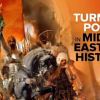
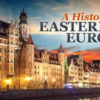



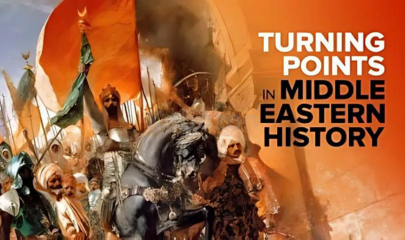

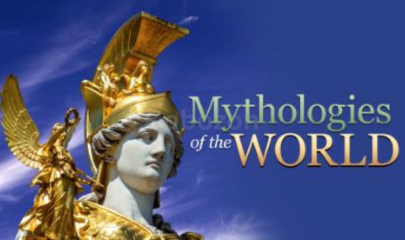

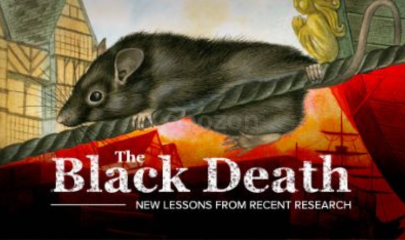

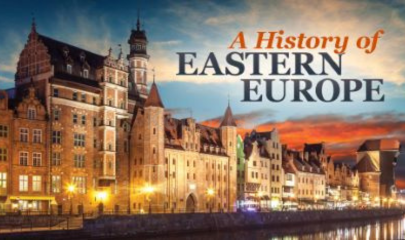

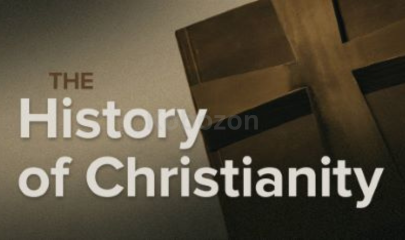
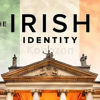
Reviews
There are no reviews yet.